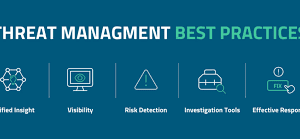DDI is a common abbreviation for a management platform that combines three important networking components. DNS, DHCP, and IP address management are three of the most important DDI components.
In networking, the DDI definition is that it is a centralized management platform for DNS and DHCP. To run a profitable business, you’ll need a DDI solution. Investing in a solid DDI solution pays off generously, primarily in terms of improved system performance and network security.
We’ll discuss what a DDI is and why you need one in this post.
What does a DDI solution entail?
To understand the DDI definition, you must first understand the meaning of its three legs (DNS-DHCP-IPAM). It unifies all three key components – DNC, DHCP, and IPAM – into a single package, making them easier to use and administer in the long run.
DNS
It’s the web’s version of the phone book. If we wish to open a webpage, we have to type a domain name such as you.com, into the address bar. A web browser’s IP address is used to communicate with other web browsers.
DNS converts domain names to IP addresses, allowing browsers to access information on the Internet.
DHCP
The Dynamic Host Configuration Protocol (DHCP) is a network management protocol that assigns a dynamic IP address and other information to each host on the network so that they can communicate effectively. DHCP automates and centralizes IP address assignments, making network administration easier. When a device is used, such as a laptop or smartphone connects to a network, it usually requests an IP address from a DHCP server.
IPAM
IPAM refers to any procedure for planning, tracking, and managing IP addresses on your network. Every device on a network, whether hardwired or wireless, is given an IP address.
Hundreds of thousands of IP addresses are used in enterprise networks. Keeping track of everything by hand is difficult. While IPAM entails more than just providing IP addresses to devices, doing so manually would be unfeasible.
DDI Management Benefits
The most obvious reason is that it is simple to manage. DDI automates various networking processes and centralizes IP administration, eliminating the need to maintain separate DNS, DHCP, and IPAM services and set up them manually.
It also reduces the complications created by manual settings and spreadsheets in managing IP addresses. DDI solutions are also built to scale with your business. This is especially important for startups, fast-growing businesses, and companies with a long-term growth strategy. If you want to simplify network management while also needing scalability, DDI is a great option. When deciding which DDI solution is ideal for your company, the best strategy is to weigh the benefits and drawbacks of each option.



































